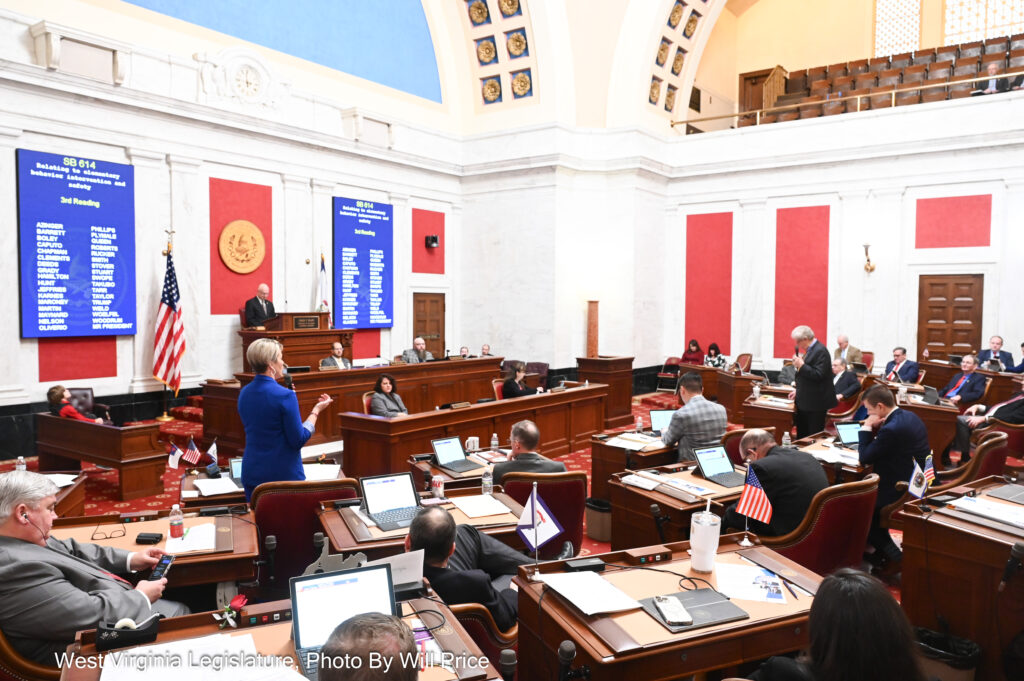Teachers may have the ability to remove troubled children from elementary school classrooms if Senate Bill 614 becomes law. The bill sparked a lot of debate on the chamber floor. It gives kindergarten through sixth grade teachers the ability to remove children from classes or from school if they are exhibiting certain behavior like threatening teachers or classmates or otherwise creating an unsafe learning environment.
Sen. Amy Grady, R-Mason, is the lead sponsor of this bill and a school teacher herself. She said the bill is to help address the teacher shortage in the state.
“One of the major issues that we are seeing is that teachers are leaving the profession in droves,” Grady said.
She said the number one reason they are leaving is teachers don’t feel they are given the authority in addressing disturbances in the classroom.
“We’re seeing violent and threatening behaviors in students as young as kindergarten that we’ve never seen before. How will this address it? This helps give the teacher a voice,” Grady said.
She said that often an administrator will remove the child from the class, and then put them right back.
“This gives teachers more of a voice to say, I feel unsafe, this child is being violent, my other students are unsafe, and they need to be removed from the classroom for today,” Grady said.
However, some opponents of the bill, like state school board members and the Kanawha County Schools General Counsel, say that this bill takes students out of the best environment for them – the learning environment – where they are surrounded by people trained to help children.
Others like Sen. Mike Woeflel, D-Cabell, questioned why this bill is not accompanied with funding or other initiatives to help children who are being disruptive in the classroom.
“If you have a child that’s misbehaving to this point,” Woeflel said. “He or she has other issues that are giving rise to this behavior and needs resources to address those issues. So it seems to me there would be funding here for counseling or intervention within the family or there’s no funding that goes to implement this bill.”
There is a shortage of school counselors in the state. Currently, there are 306 students for every one counselor in West Virginia public school systems.
Senate Bill 378
Another notable bill before the full Senate was Senate Bill 378, which would fine anyone smoking in the car in the presence of someone under the age of 16.
Lead sponsor of the bill, Sen. Tom Takubo, R-Kanawha, and a pulmonologist, said he has received letters in support of the bill. He read excerpts from a letter on the Senate floor from a man in Mingo County whose parents smoked in the car with him.
“He too, grew up in a car full of that heavy smoke,” Takubo said. “It made him so short of breath, so constricted, that it made him cough to the point of vomiting, amongst other things. Then [he] went on to say his brother died of lung cancer. Another sister with brain cancer died of emphysema.”
The bill states the fine for smoking in the car with a minor would be $25.
He said the bill will double as a public service announcement to parents so they rethink smoking in the car with their children present.
However, Mike Azinger, R-Wood, said this is a violation of parental rights.
“Parents make this decision over their children, in their vehicle,” Azinger said. “This is where the state has no business going. So I would urge a no vote.”
The bill passed with 25 – 8. .
Senate Bill 590
Currently a city, county, or municipality could set a minimum wage higher than the state minimum wage of $8.75. A bill passed by the Senate Monday seeks to change that.
Sen. Charles Trump, R-Morgan, voted for the bill. He said because there are currently no municipalities in the state that have their own minimum wage, this is a preventative measure. He said the bill protects both business and low income earners.
“If you have a state minimum wage, and some municipality says, ‘nope, the minimum wage here is twice that’,” Trump said. “It hurts the people in that municipality, because jobs go away. It eliminates jobs. And that’s what we want to prevent, make sure nothing like that ever happens.”






















